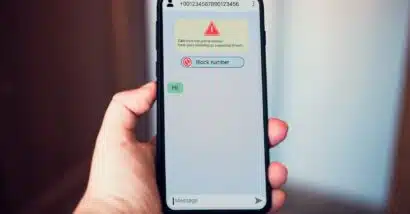 China Telecom Americas—a subsidiary of China Telecom Corp.—has been hit with a robocall class action lawsuit by an American woman who claims that she and other consumers have been targeted by the company with illegal robocalls in violation of the Telephone Consumer Protection Act.
China Telecom Americas—a subsidiary of China Telecom Corp.—has been hit with a robocall class action lawsuit by an American woman who claims that she and other consumers have been targeted by the company with illegal robocalls in violation of the Telephone Consumer Protection Act.
The plaintiff, Marlene B., alleges that she was in an important meeting when it was interrupted by a robocall from China Telecom Americas. However, Marlene claims that she never gave the company permission to call her cell phone, and has even been on the National Do Not Call Registry for years—since September 2008.
The call, Marlene notes, was made using an autodialing system. Marlene claims that she never consented to receiving such calls from China Telecom Americas, and never provided them with her phone number. She filed this robocall class action lawsuit on behalf of herself and all others similarly situated who received this kind of robocall from China Telecom.
Marlene filed her robocall class action lawsuit on Aug. 9, 2018, in the U.S. District Court for the Northern District of California.
Telephone Consumer Protection Act
The Telephone Consumer Protection Act, or TCPA, is a set of regulations meant to protect consumers from unwanted solicitation through technology, through robo calls and pre-recorded messaging systems. The TCPA was introduced back in 1991, and though technology has evolved since then, the law has been updated to include SMS text messaging on top of more traditional unwanted robocalls.
Filing a Robocall Class Action Lawsuit
Reporting violations of the TCPA or filing a robocall class action lawsuit can help force companies like China Telecom Americas and countless others to comply with TCPA regulations. Reports of violations may also grant consumers award money per individual violation.
These kinds of TCPA violations are extremely common—so common that many consumers are used to it, and may not even know that these practices are illegal. According to the Federal Communications Commission, or FCC, the agency received more than 215,000 individual TCPA complaints in the year 2014 alone.
If you have received unwanted robocalls or prerecorded messages from China Telecom Americas or another company without having given prior express permission, or after joining the National Do Not Call Registry, you should be able to report these violations or file a lawsuit and receive compensation.
Unwanted robocalls or texts in willful or knowing violation of the TCPA may be subject to statutory damages of $500, but a violation made in willful or knowing violation of the TCPA can increase that penalty to up to $1,500.
In order for your robocall class action lawsuit to be most effective, you will need to provide proof of these violations. Keep messages and phone records of the unwanted solicitation calls placed to your phone.
The Robocall Class Action Lawsuit is Case No. 5:18-cv-04834, in the U.S. District Court for the Northern District of California.
Join a Free TCPA Class Action Lawsuit Investigation
If you were contacted on your cell phone by a company via an unsolicited text message (text spam) or prerecorded voice message (robocall), you may be eligible for compensation under the Telephone Consumer Protection Act.
ATTORNEY ADVERTISING
Top Class Actions is a Proud Member of the American Bar Association
LEGAL INFORMATION IS NOT LEGAL ADVICE
Top Class Actions Legal Statement
©2008 – 2025 Top Class Actions® LLC
Various Trademarks held by their respective owners
This website is not intended for viewing or usage by European Union citizens.















2 thoughts onWoman Files Robocall Class Action Lawsuit Against China Telecom Corp. Subsidiary
Add me
Add me